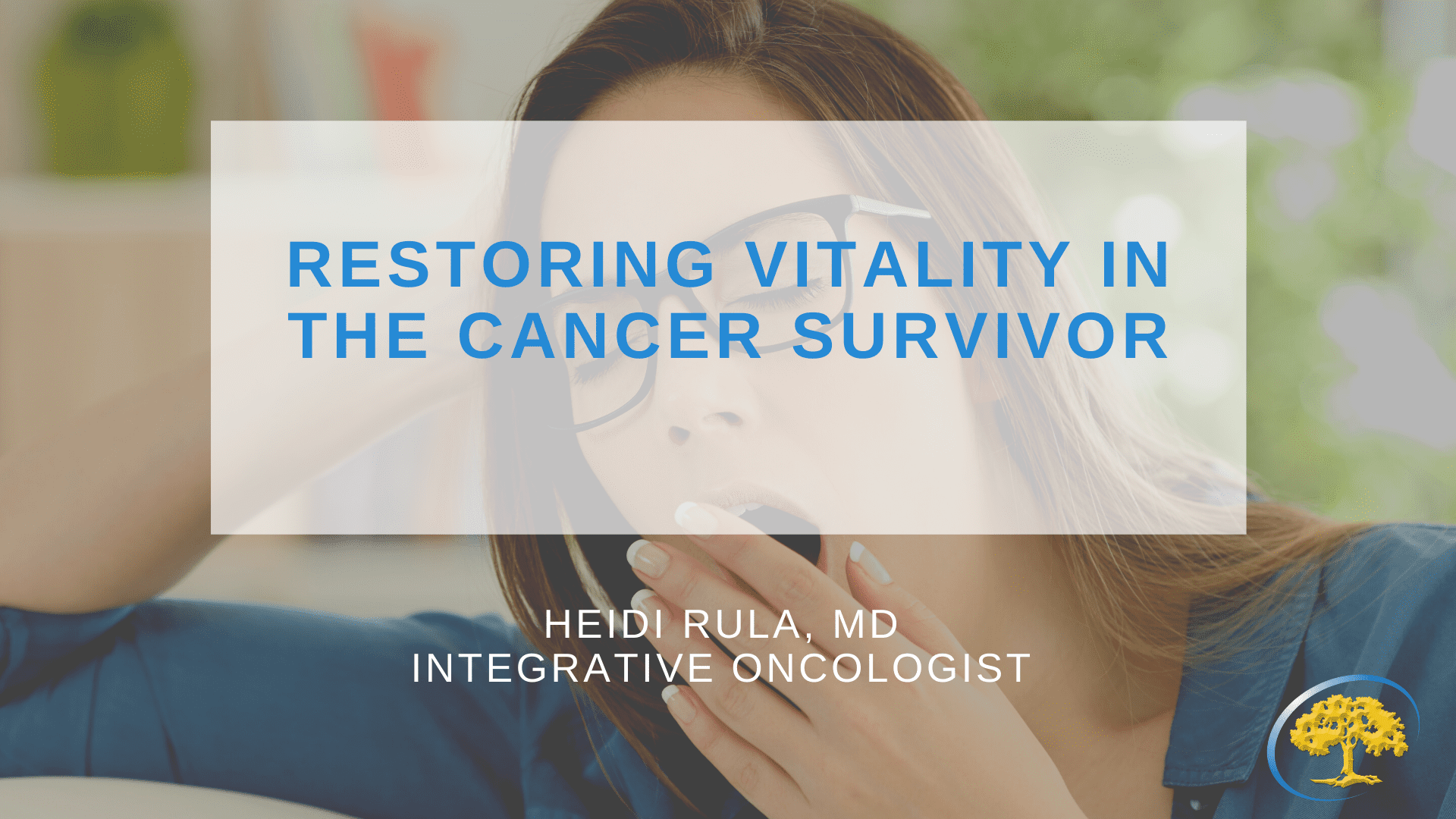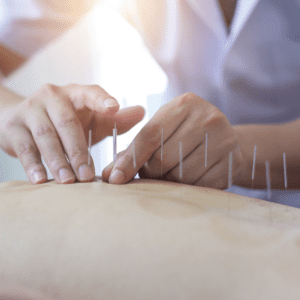
Posted 4 years ago
Restoring Vitality in the Cancer Survivor
Restoring Vitality in the Cancer Survivor
After completing cancer treatment, most patients start to feel like their health and vitality gradually returns. However, up to 30 % of cancer survivors may struggle with feeling chronically fatigued. This sense of being tired or exhausted may interfere with a patient’s ability to get back to doing their usual activities and affect not only their quality of life but also their mood and productivity.
It seems like women are at greater risk for fatigue to persist into survivorship. Other survivors that are at risk for persistent fatigue are those that have a sedentary lifestyle, those with pre-existing anxiety or depression and survivors with other chronic health conditions.
It is not completely understood why a person may develop persistent fatigue after being treated for cancer but there are some theories as to what causes this fatigue. It has been hypothesized that persistent inflammatory factors may be causing this fatigue. Other theories are that the mood chemical, serotonin, is affected or that the release of the stress hormone, cortisol, is altered.
If you are experiencing persistent fatigue after being treated for cancer, it is important to communicate this with your physician so that they can rule out other medical conditions that may be contributing to your fatigue. Medical issues like anemia, low thyroid hormone levels, sleep disturbances and mood changes like depression and anxiety are also associated with fatigue symptoms and when treated appropriately, fatigue symptoms can resolve.
There have been numerous studies conducted to identify treatments that may help those cancer survivors with persistent fatigue. Some of the following therapies have shown promise:
Stimulant Medications- pharmaceutical drugs like Ritalin, which is generally used for Attention-Deficit Disorder, has shown to benefit patients with persistent fatigue.

Tai Chi – is a form exercise involving graceful flowing movements that create a relaxation response in the body. Its origins come from the Chinese Martial arts. Participants in a study that attended a 60 min class 1-2 times a week for 12 weeks were found to have improvement in their energy levels.
Yoga – is another movement therapy that has shown benefit for those participants in a study that at
Exercise- both aerobic and resistance/strength exercise was also shown to help improve energy levels in cancer survivors. It is recommended that cancer survivors get clearance from their physicians to start any exercise program. Generally, it is recommended to start out with low intensity exercise and gradual increase as a patient’s fitness level improves with a goal of 30 min of exercise daily.
MBSR (Mindfulness Based Stress Reduction)- is a 8 week evidence based program that teaches mindfulness to help with stress, anxiety, depression and pain. Cancer survivors who complete this 8-week program have noted improvement in their fatigue symptoms.
American Ginseng- comes for the root of a plant that has been used for centuries in traditional medicine. Studies for persistent fatigue in cancer survivors have shown that this herbal medicine can improve fatigue levels.
Fatigue can be a troubling condition for cancer survivors that can significantly decrease their quality of life. It is important that any patient with persistent fatigue undergo a thorough medical evaluation to look for underlying causes. If no other medical condition is found, they can work with their physician to explore other evidence-based therapies that can help them restore their vitality.
About Heidi Rula, M.D.
Medical Director of the Supportive Care Services Department
Dr. Heidi Rula Joined Ironwood In 2018 To Launch The Integrative Oncology Program. She Is Board Certified In Family Medicine And Fellowship-Trained In Integrative Medicine. Dr. Rula Has Been A Practicing Physician In The Phoenix Area For Approximately 20 Years And Has Been Recognized By Her Colleagues As One Of Phoenix’s “Top Doctors” On Multiple Occasions.
Dr. Rula has played a key role in bringing integrative medicine to the Valley. She served as the medical director of the University of Arizona Integrative Health Center, where she leads a team of physicians and complementary practitioners in a unique model of integrative primary care that she helped to develop along with Dr. Weil and the UA Center for Integrative Medicine.
Provider Profile & CV
About Ironwood Cancer & Research Centers
Ironwood Cancer & Research Centers (ICRC) is the largest multi-specialty oncology network in the Greater Metro Phoenix area. They have over 100 medical providers, a robust Integrative Services program, and a dedicated clinical research department. Ironwood Cancer & Research Centers has 15 valley locations and five comprehensive cancer care centers that offer a multi-disciplinary approach for expedited personalized patient care. For more information, please visit www.ironwoodcrc.com.

 About
About